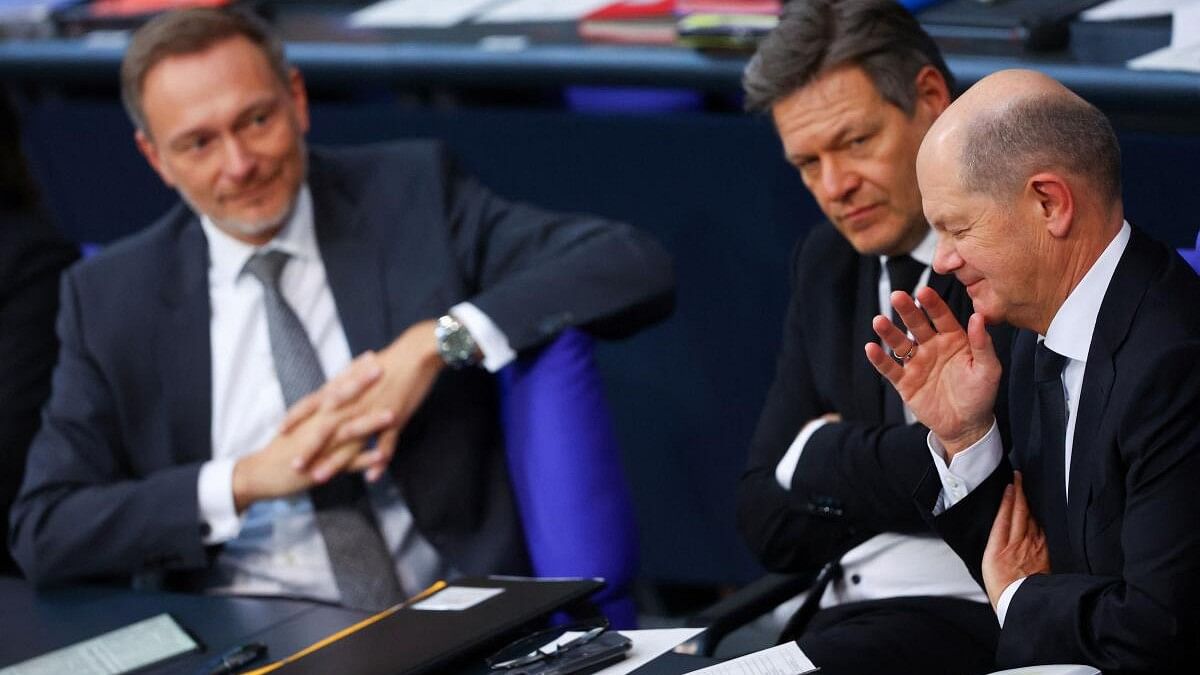
German Finance Minister Christian Lindner, Economic Affairs and Climate Action Minister Robert Habeck and Chancellor Olaf Scholz attend the 2024 budget debate session of the German lower house of parliament, the Bundestag, in Berlin.
Credit; Reuters Photo
Germany plans to oppose a draft European Union law which would require large companies to take action if they find their supply chains employing child labour or damaging the environment, according to a letter from two ministers seen by Reuters.
The landmark EU law, agreed by the bloc's lawmakers and council of member states in December, is due to be formally signed off as soon as next week and could see companies face fines of up to 5% of global sales for breaching the rules.
German businesses have criticised the law, fearing it will create bureaucracy and legal uncertainties.
The letter, sent by Finance Minister Christian Lindner and Justice Minister Marco Buschmann and dated Thursday, said the government planned to abstain on the issue.
While Germany alone cannot block the law's approval, their stance will be closely watched to see if other countries who have been unhappy with the measures decide to follow suit.
"In the Council of the European Union, this results in Germany abstaining, which ultimately has the effect of a ‘no’ vote," the letter, which government sources said was addressed to business groups, said.
Both ministers are members of Germany's pro-business Free Democrats party (FDP) and the mood inside the ruling coalition has already been fractious.
However, Labour Minister Hubertus Heil from the coalition's Social Democrats (SPD) wants to put forward proposals to ease the bureaucracy that companies would face, as a way of placating the FDP, according to officials in his ministry.
Major business associations argue that the draft guidelines went far beyond the current German supply chain law.
"German industry is relieved," said Federation of German Industries (BDI) President Siegfried Russwurm. "It's good that Berlin doesn't support this wrong path."
The rules will apply to companies in the EU that have more than 500 employees and a net worldwide turnover of 150 million euros. For non-EU companies it will apply if they have more than 150 million euros of net turnover generated in the bloc, three years from the rules coming into effect.
Lindner and Buschmann's letter said there are significant liability risks because the EU's draft corporate sustainability due diligence directive (CSDDD) is based on a very broad definition of the supply chain.
"We can also expect significant additional financia